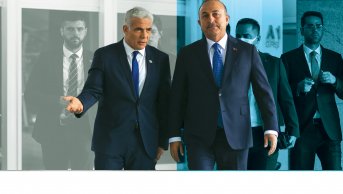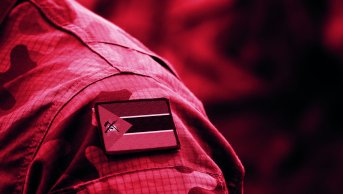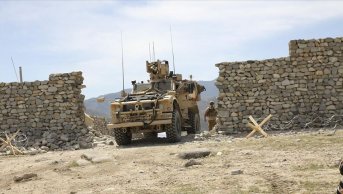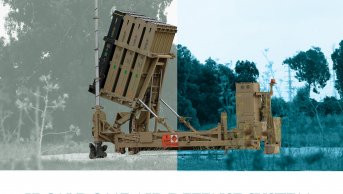Haqqani Network and Possible Reflections of the Death of Jalaluddin Haqqani
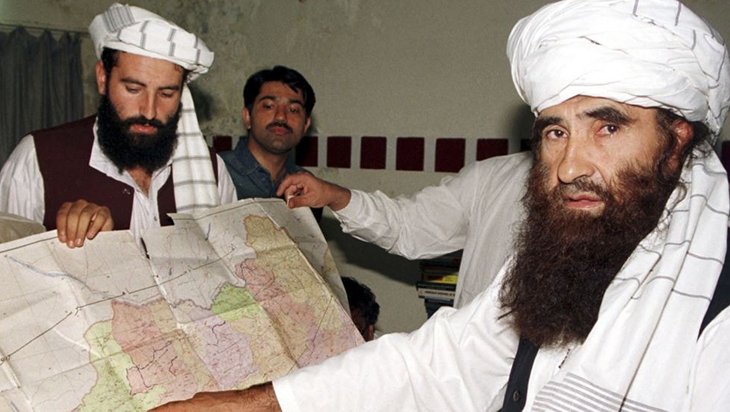
The Afghanistan intervention, which is called "the Soviet Union’s Vietnam" and resulted in the withdrawal of the USSR following the loss of 15,000 soldiers, 35,000 wounded soldiers, 300 helicopters and more than 100 planes and a considerable loss of prestige between 1979-89, was an important milestone in terms of today’s non-state armed actors. This military move matters a lot for the emergence of not only many groups that are known today and/or their transnational networks but also crucial discussions about the general debates, definitions on terrorism and approaches to the terrorist organizations. In this context, one of the most important examples regarding the organizations backed up by the West and particularly by the U.S. during the "Afghan Jihad" and their renaming and classification after 1988, especially in the 1990s following the first Gulf War, and finally bin Laden's famous 1996 speech, is the Haqqani network.
The group, known as the Haqqani network, has found its main reference point and threshold matter in the years of the Afghan Jihad, like many other structures which were/are in contact with Afghanistan-based groups. In this period, Jalaluddin Haqqani, who was in the administrative leadership of Hezb-i Islami led by Gulbuddin Hekmatyar, also received considerable backing from the USA. Jalaluddin Haqqani was born in 1947. He belongs to Zadran tribe. The tribe is described as the most effective tribal structure in southeastern Afghanistan, especially in Paktia, Paktika, and Khost. The fact that Khost is a city where Usama bin Ladin frequently traveled to and lived in has increased its importance and resulted in a close relationship between Ladin and Haqqani over time. Haqqani received his religious education in the Daruleman Haqqaniyah madrasa in Pakistan. Returning to his country in the 1970s with the aim of opening a madrasa here and fighting against the Zahir Shah administration, Haqqani first opened his madrasa in the Miran Shah after Zahir Shah was overthrown and came into prominence thanks to the American and Pakistani support in the struggle of 1980s. He became one of the most important military commanders in the Hezb-i Islami-i Halis, which emerged after the disintegration of Hezb-i Islami. In this period when the US supported the "Mujahideen" in Afghanistan, Haqqani was even described as the "goodness personified" by the then Congressman Charlie Wilson in these years.
With the announcement by Zabiullah Mujahid, a Taliban member, to the Associated Press in early September of the death of Jalaluddin Haqqani at the age of 71 who had been bedridden in recent years because of an illness -the details of which are unknown but allegedly hepatitis C or Parkinson’s disease-, the past, present and the possible scenarios regarding future of the organization became more important. On the other hand, the statements made by Afghan officials that Haqqani, in fact, lost his life in 2015, but the Taliban waited for "the right time" for this statement makes the possible consequences of this timing even more important. The emphasis on the “natural causes” of his death can be perceived as an answer to the assertion that Haqqani was killed in an attack in 2015. It is also important to note that the announcement was made before Mike Pompeo visited Pakistan and that the visit would perceived to include negotiations upon the end of the war in Afghanistan for good. The firm position of the Trump administration in relation to Pakistan and the U.S. cancellation of $300 million in aid to this country due to Pakistan's support for some groups in Afghanistan, should also be remembered in the context of the current situation in the US-Pakistan-Afghanistan triangle.
The Haqqani network, which has been described as a global terrorist organization by the US State Department since 2012, has maintained a considerably autonomous structure under the broader umbrella of the Taliban. However, Haqqani’s son Sirajuddin Haqqani’s membership in the Quetta Shura, his deputy leadership, and commander position in the military operations as well as Jalaluddin Haqqani’s prestigious position and his being an Afghan veteran played a remarkable part in this respect. Even though these tasks, which Sirajuddin has been performing since 2015, have raised questions about the autonomy of the organization, they have also significantly increased the power, reputation, and prestige of the network. Jalaluddin and Sirajuddin Haqqani have long been perceived as the closest interlocutors of the Pakistani intelligence service ISI in Afghanistan and thus the rise of the organization is an important indicator of Pakistan's activities in this geography. Sirajuddin Haqqani is thought to have a more aggressive military stance and a closer relationship with Pakistan compared to his father.
The historical background of this relationship is that the US adopted a supportive policy regarding the "mujahideen" through Saudi Arabia and Pakistan during the Afghan Jihad. However, as the attitude changed, Pakistan became an actor accused of her relations with the mujahideen and the Trump era has been the most intense or most visible period of such accusations. The fact that Jalaluddin Haqqani has benefited from the connections between the two sides of the border since the early days of the emergence of the organization and that he came from the Paktia Province near the Afghanistan-Pakistan border have strengthened this perception. The attacks on both the construction projects in Afghanistan and the infrastructure projects in India have also raised questions about the link with Pakistan. Another important point to be considered within this context was the statement of Pakistani Interior Minister Rehman Malik in 2011. In this statement, Malik recalled the support given by the US to the Haqqani organization during the Soviet intervention and stated that the US should share a crime in the rise of this structure and that Pakistan could not be accused of what had been done 20 years ago.
Jalaluddin Haqqani, who had even become the Minister of Justice (1992-1995) after the Mujahideen groups captured Kabul, returned to Khost as a result of the feuds between these groups, and joined the Taliban when the Taliban was trying to end the conflict in the country and to take control of Afghanistan. Between 1996 and 2001, he took on the task as the Minister of Tribal Affairs due to the power of his tribe. As his illness worsened in the post-2006 period, Jalaluddin became a symbolic figure that brings prestige to the Taliban and allows the group to present an inclusive posture regarding the complex tribal dynamics of the country. After this date, Jamaluddin Afghani was carrying out a more symbolic role as a consultant and a guide to, in particular, those who join al-Qaeda in the Miram Shah region in Waziristan. Sirajuddin Haqqani, on the other hand, got hold of hiss military role against the will of Karzai, opposition groups and Western troops, and showed his capacity each passing day in this post and made room for himself in the Taliban ranks.
One of the factors that played a significant role in Sirajuddin’s rise is the leadership profile of Haibatullah Akhundzada who has been more interested in religious matters and has not put a considerable weight on the political and military field after Mullah Omar, a highly effective leader. Jalaluddin’s other son, Anas Haqqani, was imprisoned in Afghanistan and sentenced to death, but the Taliban warned that such an execution would have catastrophic consequences. Numerical estimates regarding the group's current situation vary from 3 to 10 thousand people. The intricate relationship of the organization with al Qaeda and the Taliban and the transitivity of human resources play a crucial role in the emergence of such a wide range. Furthermore, it is known that the group has close ties with Lashkar-e-Taiba, Tehrik-i Taliban, the Islamic Movement of Uzbekistan, the Islamic Jihad Union and al Qaeda.
Another important point that should be considered together with the timing of the statement is that while the Haqqani organization is recognized by the US as a global terrorist organization, the Taliban is not in this category. Although this step was taken by the United States to be able to keep the communication channels open with the Taliban, which is highly influential on the ground, to what degree the given differentiation was meaningful raises questions. An anecdote about this complexity is that Bowe Bergdahl, an American soldier kidnapped in 2014 by the Haqqani organization, was delivered back to the Americans by the Taliban in exchange for five Taliban prisoners kept in Guantanamo and Sirajuddin has an influential role in the leadership of the Taliban. That the group that has carried out the biggest attacks in Afghanistan in recent years is the Haqqani organization, and therefore, to what degree the organization could be evaluated separately from the Taliban because of Sirajuddin’s role causes an important dilemma. Nevertheless, thanks to this differentiation, a Taliban leadership that struggles to set the ground for a dialogue between the US and the Taliban may then try to separate itself from the Haqqani network, which is continuing military operations, and to show the network as a military structure beyond control, and to keep the diplomatic channel open. The group under Sirajuddin’s command has the control in the east and north of the country. The Taliban may come to the forefront as an actor that would swiftly take control of the country and bring stability to it due to its own influence in the country and through its impact on the Haqqanis if enough maneuverability and space are given to the Taliban in the negotiations with the U.S.
Considering Jalaluddin’s prestige and unifying role regarding the tribes as well as the moral effect on the organization, Jalaluddin’s death engenders risks for the Taliban. But at this point, considering the fact that the Haqqani network is still one of the most effective and fearful groups in Afghanistan and that Sirajuddin can use his father's role more effectively in military and political terms because of his important position in the leadership of the Taliban, it can be argued to have a short-term and manageable effect. The allegations that both Sirajuddin and his brothers have mediated between the tribes in the region and between the tribes and the armed organizations since 2006 also show that the supratribal or tribe-affecting position is still maintained. This quick transfer of this role regarding the tribes to other family members following Jalaluddin's illness also proves that a transition has already been made to reduce the impact of such a situation.
If, as claimed since 2015, Haqqani was already dead, and the reason to delay the announcement was to eliminate its moral impact and to avoid the risk of not being able to hold the funeral due to US attacks, it is unsurprising that the Haqqani network has been getting ready for such a scenario and even made required preparations to rule out this possible damage. Taking all these into account, the Taliban may have taken this step to put forward its own role in the diplomatic process between Afghanistan, Pakistan and the United States. Indeed, it is claimed that during Pompeo's visit to Pakistan, a considerable pressure was put on Pakistan for effective struggle against terrorism but the parties could not find a consensus formula and that the Trump administration's tendency to negotiate with the Taliban has been tested. If Sirajuddin's position could be introduced as a “tamable” position after the negotiations with a “negotiable” Taliban end in success, the group can argue that the bloody actions by the Haqqani organization that could jeopardize the stability of the country would be over with his father’s death and hence, it can pave the way for Taliban to be present itself to the United States as an interlocutor in a desired shape and with likewise intentions.

